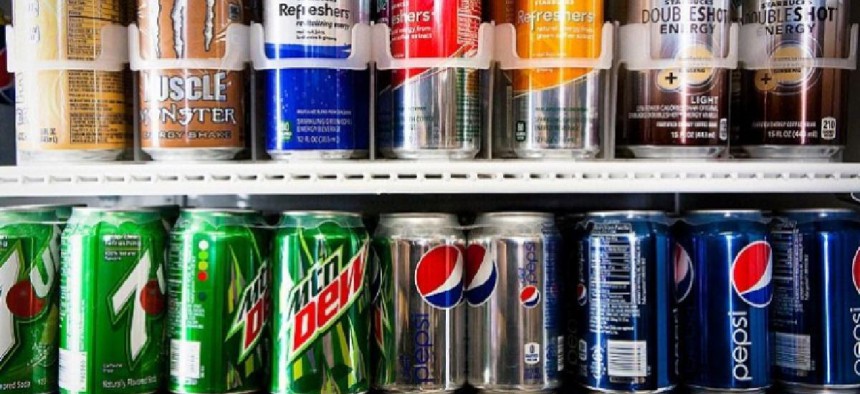Philly stockpiles $30M in soda tax revenue ahead of possible shortfall

City Hall is sitting on nearly $30 million of dollars in deferred soda tax dollars – and not everyone is happy about it.
The Mayor’s Office claims it’s just being fiscally responsible by setting aside the money – needed to fund the expansion of the city’s pre-K program to 6,500 seats – as a hedge against a pending lawsuit over the city’s soda tax, which is a key pre-K funding source.
“The plan has been, and remains, to increase the number of seats eventually to 6,500,” said Sarah Peterson, communications director for the Mayor’s Office of Education. “Due to the funding uncertainty created by the beverage industry’s litigation, we are not likely to increase beyond the current 2,000 seats until the lawsuit is resolved.”
But the American Beverage Association, which filed the suit over the Philadelphia Beverage Tax, says the administration is using the lawsuit as an excuse to sock money away for a future budget shortfall.
“There’s no legal reason why the city can’t expand pre-K right now. The receipts come in every month, despite the fact that we’re litigating the tax,” said ABA spokesperson Anthony Campisi. “But if you blame opponents for the freeze, you can build up a cushion against the fact that you're going to have a shortfall over the course of your five-year plan.”
Expanding subsidized pre-K and a related “community schools” program have been major agenda items for Philadelphia Mayor Jim Kenney since the earliest days of his mayoral campaign – but the bigger question was how to pay for these educational efforts. Kenney has since attracted both praise and criticism for pushing through a 1.5 cents per ounce levy on sales of sweetened beverages.
Today, the city says it spends about $20 million of these revenues annually on the 2,000 pre-K seats created prior to the suit’s filing. The rest, totaling some $29.7 million worth of unspent PBT funds collected over the last year, is being “reserved” for future seats, according to Peterson.
Together, that means the city is taking in about $50 million annually earmarked for pre-K. But the city’s own projections put the final annual tab for 6,500 seats at some $60 million a year by 2021.Those projected expenses notably do not include additional costs for expanding a separate “community schools” initiative, which aims to add social service-type functions to public schools at a cost of several million dollars per year.
On paper, that means that means PBT revenues would have to grow by some $10 million annually just to cover the Kenney administration’s current pre-K expansion plans. Asked if the city expected such a jump in soda tax returns, mayoral spokesperson Mike Dunn said only that the mayor would release “updated projections on the PBT for FY19 and beyond” at the March budget address.
Of course, the ABA and other critics counter that the tax burden will, in fact, drive down sugary beverage sales in the long run.
“I think this is really significant,” Campisi said. “It appears there’s a hole in (Mayor Kenney’s) long-term projections and it raises the question of why the mayor chose an unsustainable tax to pay for these initiatives. We’ve said since the beginning that this tax was unsustainable and you should use broad-based taxes for broad-based initiatives.”
So far, city revenues show monthly tax collections fluctuating between $6 and $7 million a month, totaling some $78 million last year. However, nearly a third of that take is earmarked for other programs, such as Rebuild, a massive public works project.
Privately, some in City Hall are worried about the bigger picture. The city initially projected some $450 million in soda tax spending over five years but is likely to fall well short of that initial goal. Many also expect a large funding deficit for the School District of Philadelphia is on the horizon – totaling some $701 million by 2021 – which could entail painful tax increases unless the city can find alternative revenue sources or spending cuts.
For now, city officials must wait to see if an upcoming Pennsylvania Supreme Court decision preserves the tax at all. That ABA suit has been rejected twice by lower courts since its initial filing in 2016.
The suit asserts that the PBT, which siphons 1.5 cents per ounce off sales of sweetened beverages, is essentially a “double tax” due to existing sales taxes imposed by the state. The Commonwealth’s Sterling Act "prohibits Philadelphia from imposing a tax on a transaction or subject that the Commonwealth already taxes," although the city has argued the tax differs because it is assessed on distributors, not consumers.
